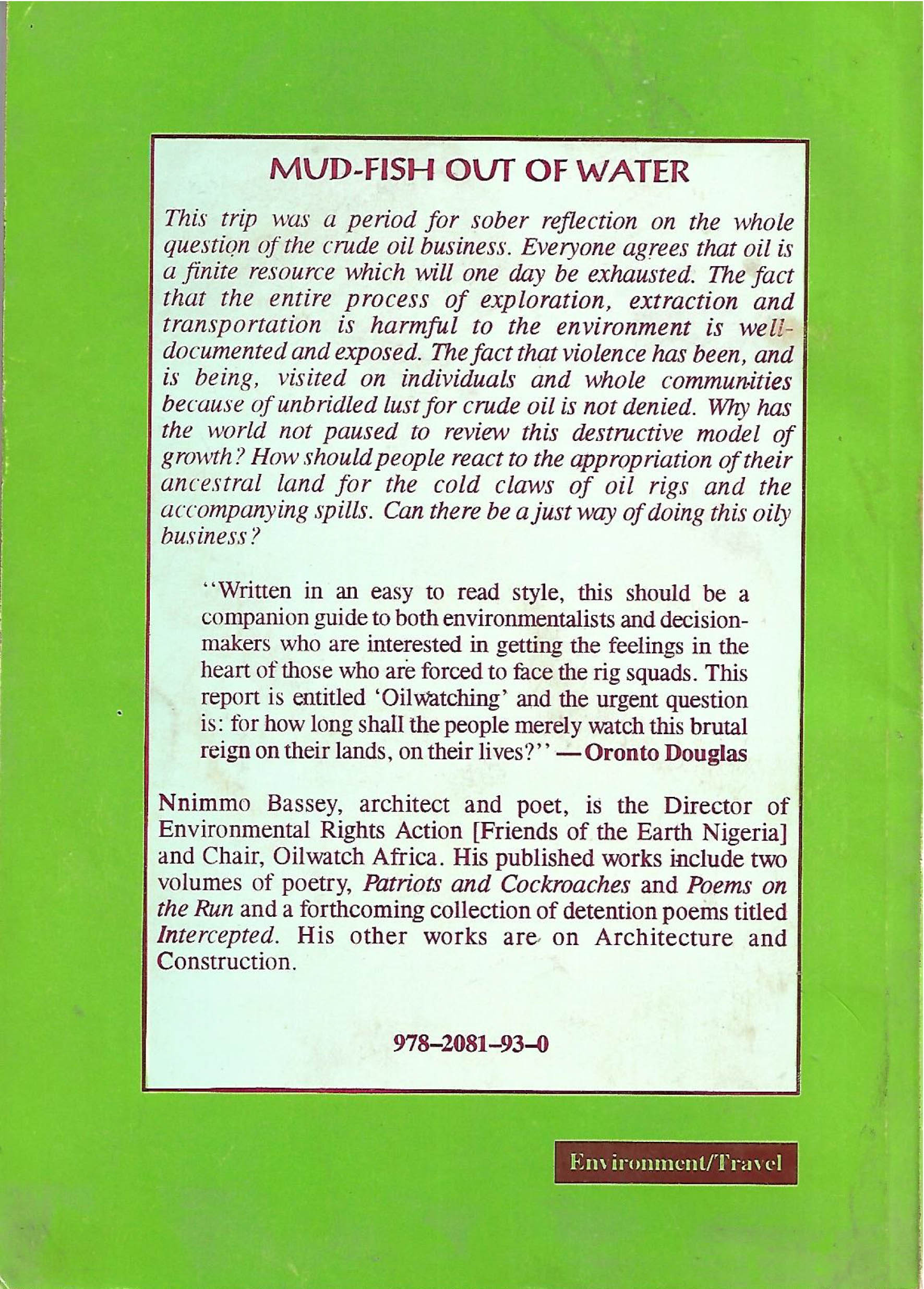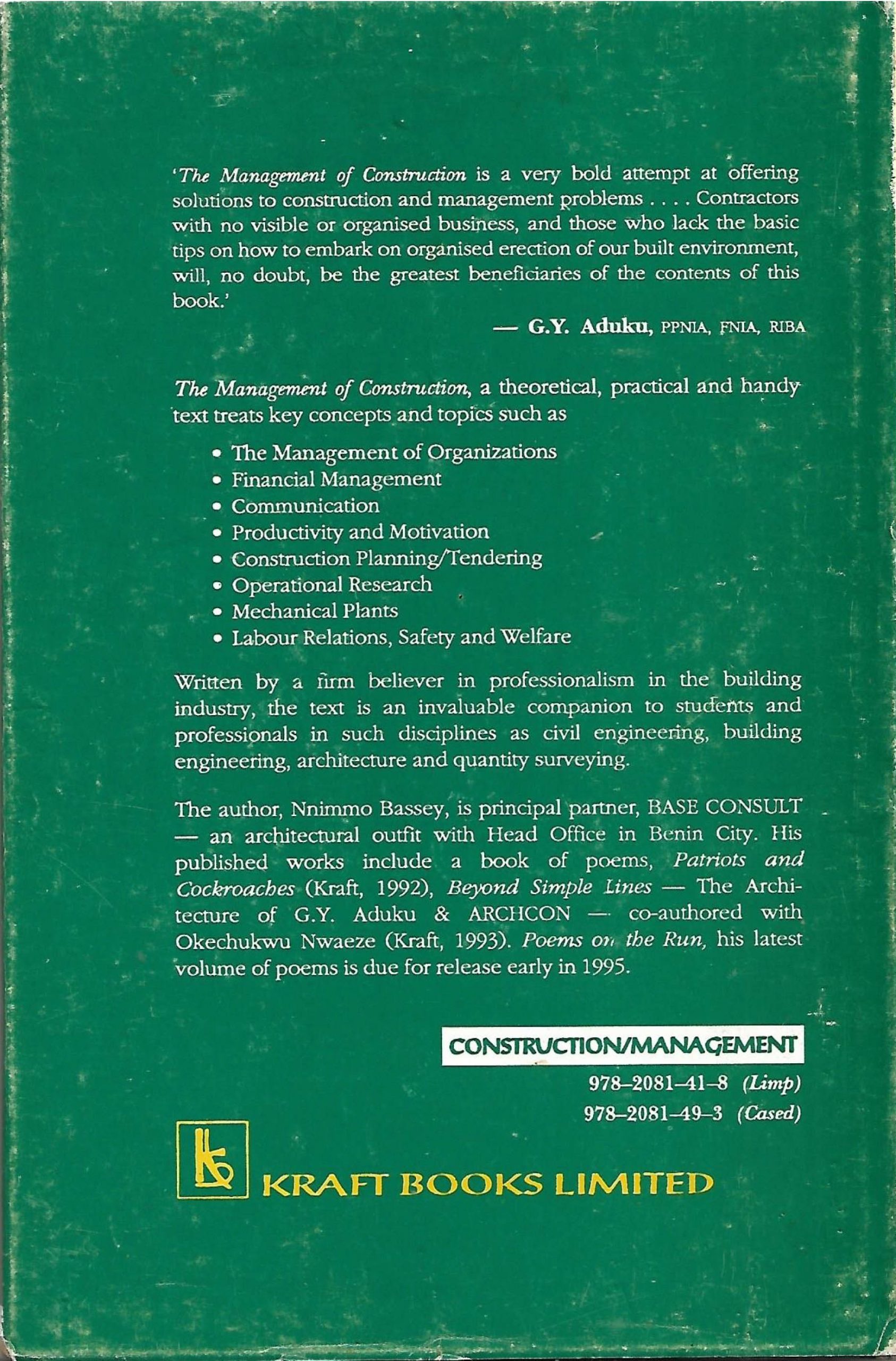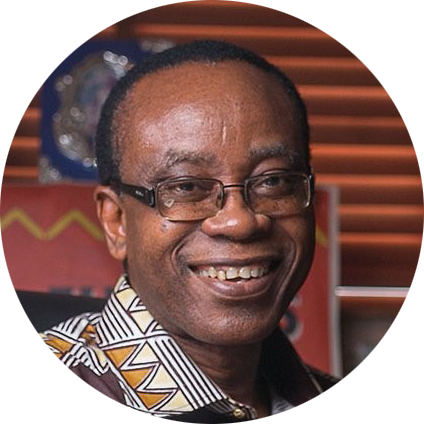A world
of books

I See The Invisible
2023
Truth be told, I never thought I would write another volume of poetry after the last, I will not Dance to Your Beat (2011). The reason was that my previous volumes were reactive to the circumstances of the times. Patriots and Cockroaches (1992) was a reaction to the socio-political corruption that had engulfed Africa and dimmed the enthusiasm that had been built by the years of struggle for independence. Whereas we thought we were stepping into a post-colonial era, what we stepped into was a vicious neo-colonial times. The next collection, Poems on the Run (1995) was a reaction to military autocracy and the repression that followed. The volume was literally written underground. This was followed by Intercepted (1998) all written while detained at Kalakuta Republic of Alagbon Close. We Thought it was Oil But it was Blood (2002) responded to two things primarily – extractivism and the accompanying human and environmental rights abuses in the Niger Delta and elsewhere. The massive erosion of biodiversity and attacks on food sovereignty through the introduction of genetically modified organisms (GMOs) into our agricultural system inspired I Will not Dance to your Beat.
What you have in your hands, or on your screens, is a compilation that is largely more meditative than the previous collections. There are moments of reflection on the colonial and neoliberal foundations that permit a willful disconnection from nature and the resultant destructive extractivism.
Some of the poems came through conversations and poetry writing sessions with Peter Molnar, Maryam al-Khawaja — Rafto Human Rights laureates and Salil Tripathi, a member of the board of PEN International, in August 2017. The sessions held at a beautifully rustic location in Celleno, Italy, were documented on celluloid by the duo of Maria Galliana Dyrvik and Anita Jonsterhaug Vedå of SMAU, a multimedia firm in Norway. Poetic relationship with Maria and Anita has continued over the years and their work continues to inspire more and more poems.
We have also had time to ponder on the criminalization of environmental defenders and the burdening of victims with survival struggles with no life boughs. The poems were written over a wide span of time and require some pondering as poems often demand, of course. Although written over a broad time spectrum, they fall into identifiable themes. The harsh times that birthed the earlier volumes were blunted with doses of humour as poetry is largely therapeutic and contributes to our wellness and well-being.
In our communities, poetry and song are key tools for exposure of ills in our societies, for education and for rebuke. Poetry is an indispensable cultural tool with which we laugh at the wicked and add the needed bounce to our steps as we march on to end ecocide and give our people and other beings a chance to retain our being.
The call of this volume is that we must ensure that we see the invisible and hear the inaudible.


Oil Politics – Echoes of Ecological Wars
2016
Oil Politics – Echoes of Ecological Wars is a response to unrelenting ecological assault on environment by government and oil corporations in Nigeria. The essays here contribute to deepening an understanding of the ecological challenges ravaging Nigeria, Africa and our world today. They illustrate the global nature of these terrors. These essays are not meant for coffee table chatter: they are intended as calls to action, as a means of encouraging others facing similar threats to share their experiences.


To Cook a Continent – Africa: Destructive Extraction & Climate Change
2014
People in Africa argue that natural resources are a blessing. It is the way these are plundered and used that turn them into a curse. This book examines how the extraction of raw materials from Africa has delivered huge profits to the North – and vast damage to Africa’s environment and economies.
Bassey pays close attention to the oil industry in Africa and probes the roots of climate change. He warns of its impacts in Africa, and of false solutions.
What can Africa do? And can the rest of the world act in solidarity?


I will Not Dance to Your Beat (poems)
2011
The reclamation of man’s humanity, the halting of the continued depletion of the earth’s resources are the passions that move the poet in this dance of defiance, I Will Not Dance To Your Beat. In poem after poem, and line upon line, the poet, like an impatient and burdened prophet, nudges the conscience, calling attention to the dangers that lie so openly before humanity as she continues on a relentless and profligate despoliation of the earth’s natural riches.
Every poem in this collection is an anthem for change, a battle-cry to safeguard the future of unborn generations. But much more than mere agitation, the poet is able to marry successfully his creative ability with his social vision. The poems flow freely, simply, and beautifully, evoking in the process an ambience of performance.


The Nigerian Environment and the Rule of Law
2009
This book is an outcome of the National Consultation on the Nigerian Environment and the Rule of Law held at the Reiz Continental Hotel, Abuja between 10 and 11 December 2008. The work discusses existing laws and highlights their short-comings in protecting the environment, local livelihoods and in guaranteeing resource management and control. It also examines issues like ecological justice and the impacts of environmental despoliation on local communities, the nexus between labour, gender and environmental movements and how they can promote human rights and a safe environment.




Knee Deep in Crude, ERA Field Report
2009
These are the first and second volumes of the compilation of selected environmental reports of injustice visited on the Nigerian environment and local communities by multinational corporations and other agencies.
Our first book of reports was Environmental Testimonies published in 2000. That book was issued as a means of both exposing the pains of local communities and also in recognition of the fact that we cannot really tell the stories of the pains of other people better than they can tell it themselves. that book allowed the people to speak for themselves.
In this book, we have continued in the tradition of allowing impacted peoples speak for themselves. The reader will notice that the voices of the people are given space in virtually all the reports. Impacted peoples in Nigeria have learned that they just must speak up or die in silence as their environments are persistently assaulted.
The dates the reports were published are given in footnotes. In some of the reports, the dates of publication coincide with the dates the events occurred. It is important for the reader to know that the reports are not necessarily arranged in a chronological order.


Living Houses (Architecture)
2005
This book is essentially aimed at preparing you for the confrontation with the architect, not as a duel, but a warm and frank collaboration through a confrontation of ideas, concepts and presentations.
To get your dream house realised, the architect collaborates with the structural, mechanical (plumbing) and electrical engineers as well as the quantity surveyor.
There is a joke that health practitioners bury their mistakes while architects plant trees and flowers around theirs. This illustrates the difficulty of hiding a bad piece of architecture. As an owner of a bad or ugly building, you can hide inside the building, but your neighbours cannot easily avoid the view outside.
Many bad buildings are results of bad briefs. Do not fear to take your architect’s time. Take him on a mental excursion through your dream house.
This book is conceived as a conversation starter or a coffee table companion. it is designed to help you design and build that house of your dream. It is invaluable to homeowners, students of architecture and engineering; while builders and allied professionals will find it quite helpful and useful.


Genetically Modified Organisms: The African Challenge
2004
All people shall have the right to (a) generally satisfactory environment favourable to their development – ARTICLE 24, African Charter on Human and People’s Rights


We Thought It Was Oil, But It Was Blood (poems)
2002
It used to be the case that poetry was penned in the moments of tranquility, for the edification of our species. But Nnimmo Bassey adds a brave new dimension: poetry is now deployed like a potent weapon aimed at those who would eat out today and render tomorrow’s people destitute. Bassey’s verse speaks to unaccountable power, not in the strident tones of bad poetry disguised as potent, but in the tradition of the song as censure, the uttered word as witness to truth. Aime Cesaire and Pablo Neruda walked that path before. Mr Nnimmo Bassey is worthy of their company.


Intercepted (poems)
1998
If Poems on the Run (Kraft, 1995) is an account of Mr Bassey’s flight from the face of tyranny, Intercepted, his new volume of poems, is about his flight into detention.
Holed up for no offense, the poet paints in vivid and lucid images, the harrowing experience of being denied freedom and punished for a strange crime called “intercepted person”, a strange entry into the laws of our land.
Intercepted exhibits the wanton savagery towards a human being likened to contraband goods being ferried into the gaping jaws of security officers.
Mature, passionate and daring; these detention poems laced with poet’s usual humour draw graphic attention to the uncertainties hovering over us.


Oilwatching in South America
1997
This trip was a period for sober reflection on the whole question of the crude oil business. Everyone agrees that oil is a finite source which will one day be exhausted. The fact that the entire process of exploration, extraction and transportation is harmful to the environment is well documented and exposed. The fact that violence has been, and is being, visited on individuals and whole communities because of unbridled lust for crude oil is not denied. Why has the world not paused to review this destructive model of growth? How should people react to the appropriation of their ancestral land for the cold claws of oil right and the accompanying spills. Can there be a just way of doing this oily business?


Poems On The Run (poems)
1994
These poems distill meaningful music from the adversity of imperilled freedom. their mission is the excoriation of evil and the triumphal celebration of human goodness. They are poems which bare our “wounded existence” sometimes with rage, sometimes with witty humour, always with a touch of hope. The anger here is regenerative, the satire focused and consistently humane. Poems on the Run is crafted to keep us on our toes.


The Management of Construction
1994
The Management of Construction, a theoretical, practical and handy text treats key concepts and topics such as: The Management of Organisations, Financial Management, Communication, Productivity and Motivation, Construction planning/Tendering, Operational Research, Mechanical Plants, Labour Relations, Safety and Welfare.
Written by a firm believer in professionalism in the building industry, the text is an invaluable companion to students and professionals in such disciplines as civil engineering, building engineering, architecture and quantity surveying.


Beyond Simple Lines: the Architecture of Chief G.Y. Aduku and Archon (with Okechukwu Nwaeze)
1993
The hallmark of the architecture of ARCHCON can be summarised as simple, non-exotic Roman with forms, careful detailing and an obsession for a prudent use of the client’s money. Naturally, a concern for the socio-cultural setting comes in ARCHCON’s preoccupation with these elements of its architecture and a building occurs that is not only aesthetically satisfying but which enables the client to call again on the services of the firm whenever another opportunity presents itself.
The story of Chief Gabriel Aduku is intertwined with ARCHCON’s architecture. You cannot treat one without the other…The success story of most of our architectural firms is also story of their principal partners. this book is the story of Chief Aduku and of those who had joined him in building ARCHCON to what it is today. It will make a useful reading and encourage practicing architects who are yet to document their achievements in architectural practice to do so for posterity and for the enoblement of our profession.


Patriots & Cockroaches (poems)
1992
Patriots and Cockroaches unmasks the hidden “monsters” in our polity. In very accessible verses, the poet draws attention to the oddities and challenges of survival in a developing nation. Often humorous but manifestly deep and satiric, Patriots…is a prophetic and constant reminder of our avoidable foibles in governance, leadership and social responsibility.
Follow me on Social Media

